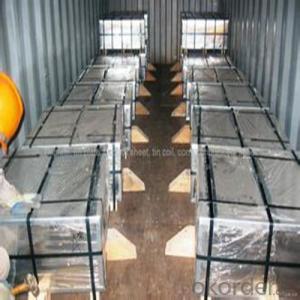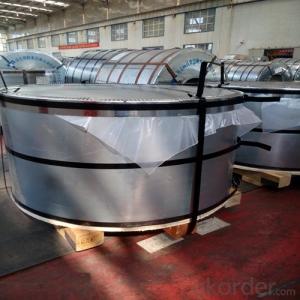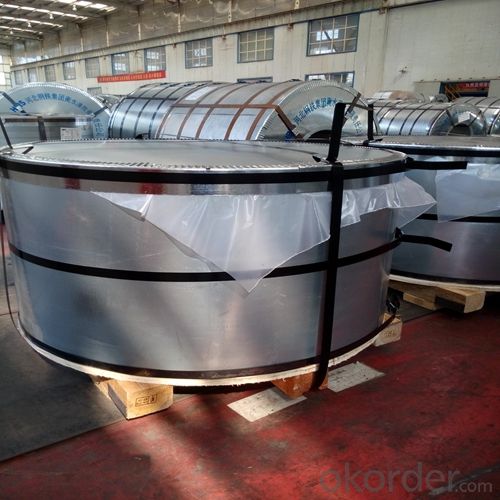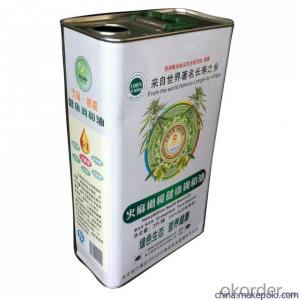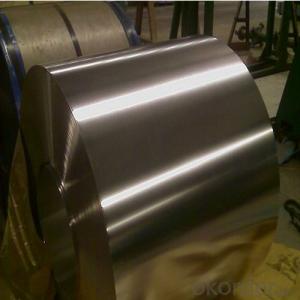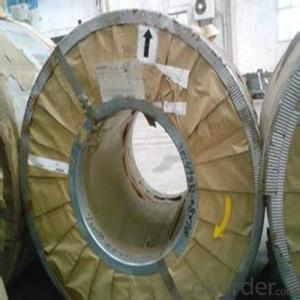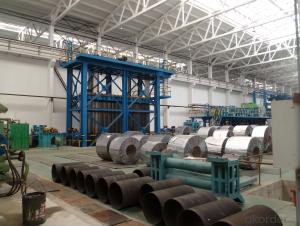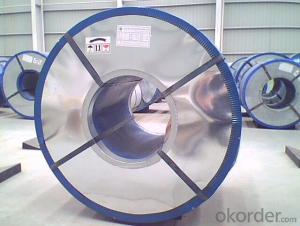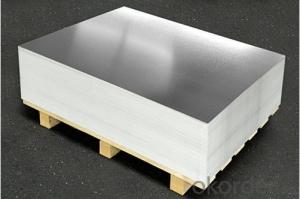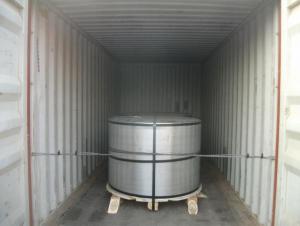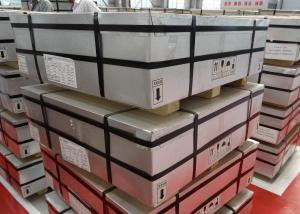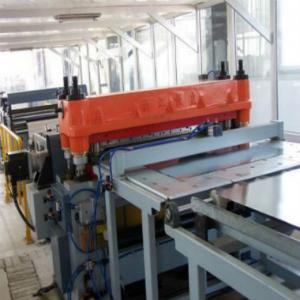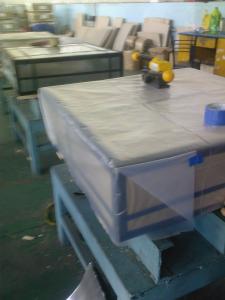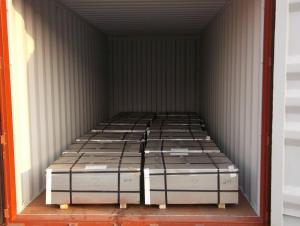Electrolytic Tinplate of Prime Quality for Chemical Industrial Cans Use
- Loading Port:
- Qingdao
- Payment Terms:
- TT OR LC
- Min Order Qty:
- 50 m.t.
- Supply Capability:
- 30000 m.t./month
OKorder Service Pledge
OKorder Financial Service
You Might Also Like
1.Structure of Electrolytic Tinplate of Prime Quality for Chemical Industrial Cans Use
Electrolytic Tinplate is a thin steel sheet coated by tin. It has an extremely beautiful metallic luster as well as excellent properties in corrosion resistance, solder ability, and weld ability.
2.Main Features of the Electrolytic Tinplate of Prime Quality for Chemical Industrial Cans Use
Appearance – Tinplate is characterized by its beautiful metallic luster. Products with various kinds of surface roughness are produced by selecting the surface finish of the substrate steel sheet.
Paintability and printability – Tinplates have excellent paintability and printability. Printing is beautifully finished using various lacquers and inks.
Formability and strength – Tinplates have got very good formability and strength. By selecting a proper temper grade, appropriate formability is obtained for different applications as well as the required strength after forming.
Corrosion resistance – Tinplate has got good corrosion resistance. By selecting a proper coating weight, appropriate corrosion resistance is obtained against container contents. Coated items should meet 24 hour 5 % salt spray requirement.
Solderability and weldability – Tinplates can be joined both by soldering or welding. These properties of tinplate are used for making various types of cans.
Hygienic – Tin coating provides good and non toxic barrier properties to protect food products from impurities, bacteria, moisture, light and odours.
Safe – Tinplate being low weight and high strength makes food cans easy to ship and transport.
Eco friendly – Tinplate offers 100 % recyclability.
Tin is not good for low temperature applications since it changes structure and loses adhesion when exposed to temperatures below – 40 deg C.
3. Electrolytic Tinplate of Prime Quality for Chemical Industrial Cans Use Images
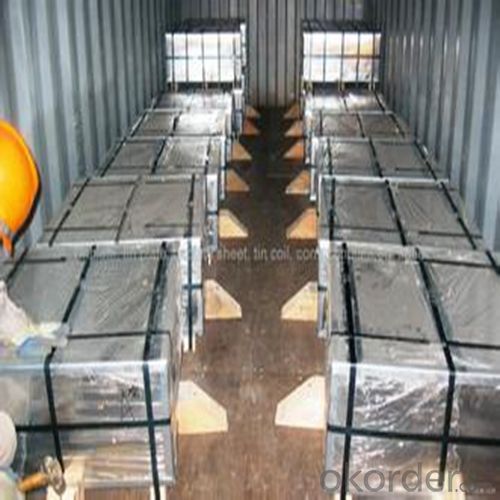
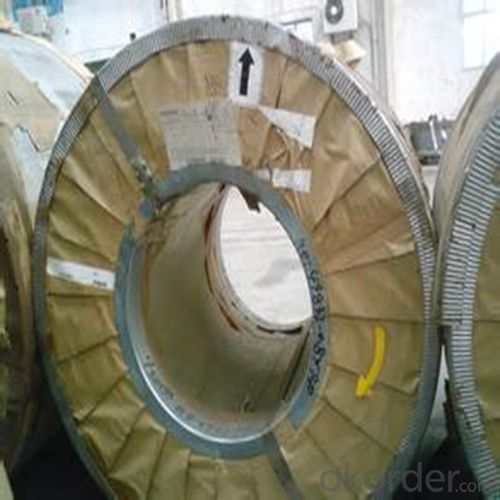
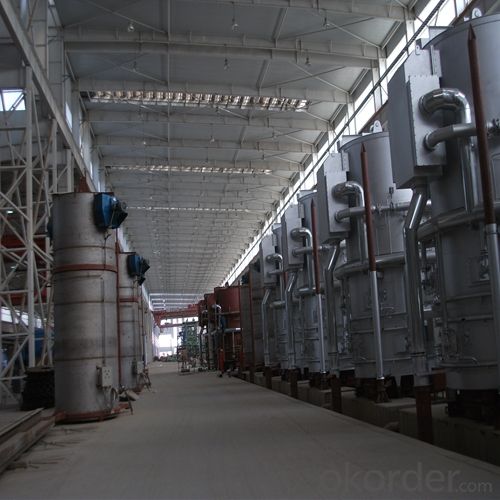
4.Electrolytic Tinplate of Prime Quality for Chemical Industrial Cans Use Specification
Standard: ISO 11949 -1995
Material: MR
Thickness:0.34mm
Width: 600mm
Temper: T3
Annealing: BA
Coil Inner Diameter: 508mm
Weight: 6-10 tons/coil 1~1.7 tons/sheets bundle
Passivation:311
Oil: DOS
Surface: Finish
5.FAQ of Electrolytic Tinplate of Prime Quality for Chemical Industrial Cans Use
- How are the tinplates specified?
The tinplates are specified as per the steel base, extent of tempering, the coating weight, annealing method and the surface finish.
- How many types there are for base steels?
The base steels are of three types: Type MR, L, D
- Q: How is tinplate used in the pharmaceutical industry?
- Tinplate is commonly used in the pharmaceutical industry for packaging purposes. It is often utilized to create metal containers such as cans or tubes to store various types of medications, ointments, creams, or powders. Tinplate provides a durable and corrosion-resistant packaging solution that helps protect the pharmaceutical products from external factors like moisture, light, and air, ensuring their quality and extending their shelf life. Additionally, tinplate containers can be easily sealed to maintain product integrity and provide tamper-evident features, offering an added layer of safety for consumers.
- Q: What are the typical cost considerations for tinplate packaging?
- The typical cost considerations for tinplate packaging include the price of the tinplate material itself, manufacturing and processing costs, design and printing expenses, transportation and logistics fees, as well as any additional customization or branding requirements. Additionally, factors such as order quantity, market demand, and supplier negotiations can also influence the overall cost of tinplate packaging.
- Q: How is tinplate coated for furniture?
- Tinplate is typically coated for furniture by a process called electroplating. The tinplate is immersed in an electrolyte solution, and an electric current is applied to deposit a layer of tin onto the surface. This coating enhances the durability and corrosion resistance of the tinplate, making it suitable for furniture applications.
- Q: Can tinplate be used for toys and games?
- Yes, tinplate can be used for toys and games. Tinplate is a lightweight and durable material that can be easily shaped and decorated. It is commonly used to make toy cars, trains, tin soldiers, and various other playthings.
- Q: What are the main innovations in tinplate production and use?
- Some of the main innovations in tinplate production and use include the development of continuous annealing processes, which improve the quality and consistency of the tinplate, as well as the introduction of advanced coating technologies that enhance the corrosion resistance and lifespan of the tinplate. Additionally, the use of tinplate in various industries has expanded, with advancements in printing techniques allowing for vibrant and intricate designs on tinplate packaging. Furthermore, the integration of recycling processes has emerged as a significant innovation, promoting sustainability and reducing environmental impact in the production and use of tinplate.
- Q: Does tinplate require any specific handling or storage conditions?
- Yes, tinplate does require specific handling and storage conditions. It should be protected from moisture and kept in a dry environment to prevent rusting. Additionally, it is recommended to store tinplate in a cool and well-ventilated area to maintain its quality and prevent any potential damage.
- Q: Both tinplate and stainless steel have corrosion protection
- Stainless steel is added in the iron, Cr, Ni and other corrosion-resistant materials, is fundamentally changed the anti-corrosion properties of materials.
- Q: Can tinplate be used for paint can packaging?
- Yes, tinplate can be used for paint can packaging. Tinplate is a commonly used material for making paint cans due to its durability, corrosion resistance, and ability to protect the paint from external factors. It is also easy to print on and provides a smooth surface for labeling and branding purposes.
- Q: What are the recommended soldering techniques for tinplate?
- The recommended soldering techniques for tinplate include pre-tinning the surface, using a low-temperature solder, ensuring a clean and smooth joint, and avoiding excessive heat to prevent damage to the tin coating.
- Q: Can tinplate be used for microwave-safe packaging?
- No, tinplate cannot be used for microwave-safe packaging as it is made of steel coated with a thin layer of tin, which can cause sparks and potential damage to the microwave.
Send your message to us
Electrolytic Tinplate of Prime Quality for Chemical Industrial Cans Use
- Loading Port:
- Qingdao
- Payment Terms:
- TT OR LC
- Min Order Qty:
- 50 m.t.
- Supply Capability:
- 30000 m.t./month
OKorder Service Pledge
OKorder Financial Service
Similar products
Hot products
Hot Searches
Related keywords
